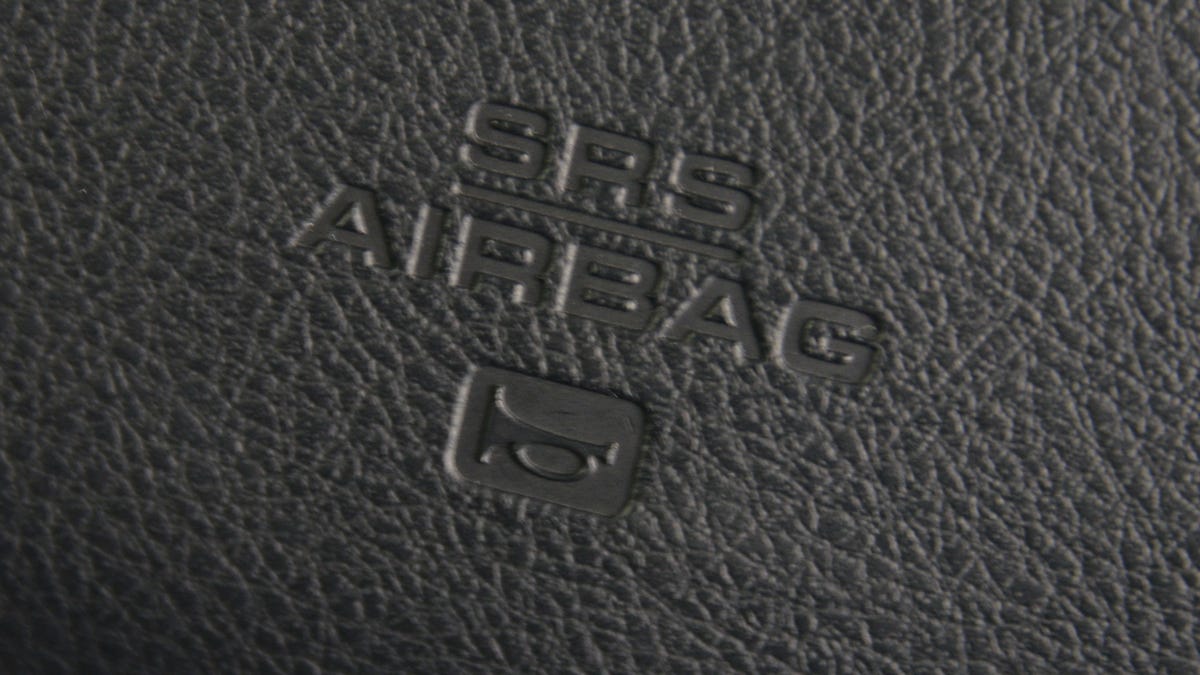Takata lawsuit alleges 5 automakers knew of defects, kept using parts
The allegations come the same day Takata is expected to plead guilty to wire fraud.

It's been a while since we've reported on the Takata airbag scandal, but a recent report alleges that it may extend beyond Takata alone.
The parties suing Takata and five automakers -- Honda , Toyota , Nissan , Ford and BMW -- allege that those five automakers knew about Takata's faulty airbag inflators and chose to sell vehicles equipped with those parts anyway, The Detroit News reports. The allegations are part of a status report filed Monday by lead plaintiff attorney Peter Prieo.
"[The automakers] were focused on the low price of Takata's inflators and concerned that if they stopped using [them], they might not have a sufficient supply, which would prevent them from selling vehicles and generating billions of dollars in revenue," the status report alleges.
Finding replacement parts for every single defective airbag inflator has proven tricky.
Prieo's court filing points to specific evidence of this malfeasance, as well. For example, it alleges that Ford's own expert objected to using the parts, but the automaker went ahead and did so anyway. The allegations are based in part on the automakers' own documents, the filing says.
Representatives for Ford did not immediately return requests for comment. BMW and Nissan would not comment on ongoing litigation. Toyota declined to comment, as well. Honda released a statement, which can be read in its entirety below:
The Plaintiffs' status report filed in the Multidistrict Litigation class action lawsuit related to the Takata airbag inflator recalls is misleading. Plaintiffs' false assertions that Honda and other automotive manufacturers behaved irresponsibly are a transparent effort by Plaintiffs to maintain their claims for economic loss notwithstanding Takata's guilty plea and admission that it concealed and misrepresented test data from 2000-2015 for the airbag inflators Takata developed and supplied to Honda and other manufacturers. The reality is that when Honda learned of the risks that these airbag inflators presented, Honda reacted promptly and appropriately by issuing safety recalls and replacing the affected Takata airbag inflators at no charge to its customers.
Moreover, the suggestion that Honda chose to use Takata airbag inflators - despite knowing of the risk of rupture - because they were less expensive than other inflators is categorically false. The safety of Honda's customers is the most important factor for Honda when making product decisions. Honda does not buy airbag inflators or other individual components of an airbag module; it buys an entire airbag module. In Honda's experience, Takata's modules were not consistently more or less expensive than those of its competitors. Sometimes they were more expensive, sometimes less.
When Honda installed Takata's airbag modules in its vehicles, Honda reasonablybelieved, based on extensive test results provided by Takata, that they were safe. Only recently, in its guilty plea, did Takata admit that it had misrepresented test results it provided to Honda and other manufacturers.
Today marks an important step in the Takata scandal in other ways, too. The auto supplier is expected to plead guilty to wire fraud in Detroit, and it will pay $1 billion in criminal penalties related to the sales of its defective airbag inflators.
The inflators in question might fail to inflate a vehicle's airbag, instead exploding in a cloud of shrapnel that can cause injury or death. The cause relates to the use of ammonium nitrate within the inflator. A lack of a moisture-absorbing substance, called a desiccant, along with an assembly that insufficiently protects against humidity can cause the parts to fail.
Thus far, tens of millions of components have been recalled, covering millions of cars in the US alone. There's a full list of affected vehicles available on the National Highway Traffic Safety Administration website, and it's updated every time an automaker expands a recall.
Update, February 28, 2017: Updated manufacturer comment.

